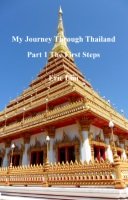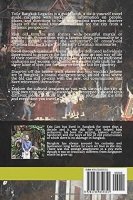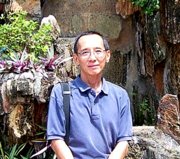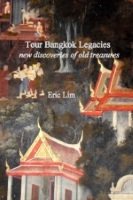- Home
- Democracy Monument
- Coups in Bangkok
Coups in Bangkok
an anatomy of power
By Eric Lim
Coups in Bangkok 1932 – 1940 (3 coups)
On 24 July 1932, the People's Party with the backing of a group of military officers staged the first of the coups in Bangkok. This coup ended 150 years of absolute monarchy and was meant to bring on constitutional government.
But for the next seven decades more coups were to follow.
In 1933 the assembly had factions from the People's Party under Pridi Banomyong, the military with Phahon Yothin and Phibun Songkhram and representatives from the civilian sector.
Mano, a civilian was made PM. When he tried to curb the leftist People's Party, they threw him out on 20 June 1933, with military help. Phahon, a military officer, was made PM.
In October 1933, Prince Boworadet, a grandson of King Rama V, dissatisfied with constitutional rule led a rebellion by provincial garrisons. The rebels advanced on Bangkok attacked and captured Don Muang airfield.
They were met by government forces led by Phibun.
After four days of intense battle, the rebels were defeated.
The first direct elections for the assembly were held in 1938.
Phibun replaced Phahon as PM in 16 December 1938 and imposed a military dictatorship.
During WW II, the Phibun government collaborated with Japan and allowed free passage of Japanese troops through Thailand.
Have you been caught in one of these coups in Bangkok? Share your coup experience.
Coups in Bangkok 1941 – 1950 (4 coups)
On 31 July 1944, when it was clear that Japan would be defeated, the assembly dumped the pro-Japanese Phibun and appointed Khuang Apaiwong, a civilian as PM.
On 1 Sep 1945 Khuang resigned to start the Democrat party. Seni Pramoj, the ambassador to the US during WW II was made PM. All this while, Pridi, as the elder statesman, remained the power behind the scene as the discredited military stayed in the background.
After the Jan 1946 elections, Pridi had the majority but chose to appoint Khuang as the PM instead. The situation became intolerable for Khuang who resigned in March and Pridi took over. A new constitution was proposed in May 1946 with a bicameral parliament.
On 9 Jun 1946, when the young King Rama VIII was found dead in the palace, Pridi had to resign in disgrace. Thamrong took over a government paralyzed by defections and political in-fighting.
On 8 Nov 1947, Phibun and a group of military officers staged a coup and took over the government. The coup plotters stained by their collaboration with the Japanese had to remain in the background.
To win acceptance by the West, Khuang was appointed PM again. In the Jan 1948 elections the Democrat Party won by a small majority and Khuang retained the premiership.
Phibun and the military stayed their hand for the time being. When they saw the Democrats increase their influence at the expense of the military, Phibun made his move. On 8 April 1948 Phibun forced Khuang's resignation and in a reverse of events took over as PM.
In October 1948, senior army officers led by General Net plotted to overthrow Phibun. They were arrested and the plot collapsed.
Again on 26 February 1949, Pridi led a revolt by marines and navy in an attempt to seize power. After 3 days of fighting with loyalist troops, the rebels were defeated.
Coups in Bangkok 1951 – 1960 (4 coups)
On 29 June 1951, during handover ceremony of the dredging vessel, Manhattan by the US government, marines and navy abducted Phibun to the battle ship Sri Ayutthya.
In what was dubbed "The Manhattan Coup", fierce land air and naval battles broke out. Loyal garrisons fought the navy rebels in Bangkok. The Air Force bombed and sank the rebel battleship Sri Ayutthaya. Phibun survived at a cost of 3,000 casualties.
On 29 November 1951, in what was known as the Radio or Silent Coup, the military took over a radio station, announced the suspension of the 1949 constitution and reinstated the 1932 version in a bid to curb royal powers.
This was done while the new King Rama IX was still on his way back to Thailand from Europe.
Phibun stayed in power till 16 September 1957, when General Sarit Thanarat, tired of the political bickering, seized power and ousted Phibun.
In the December election, the government won by a bare majority, resulting in a hung assembly torn by strife and constant in-fighting that brought the government to a standstill.
Within a year Field Marshall Sarit had enough of this futile experiment in democracy. He abolished the constitution and declared martial law on 20 October 1958, with rule by decrees to restore law and order. When Sarit died in December 1963, Thanom took power.
There were no coups in Bangkok from 1961 – 1970.
In 1968 the Thanom government issued a new constitution and elections followed a year later. The lower house was plagued by infighting and the government grinded to a halt.
Coups in Bangkok 1971 – 1980 (3 coups)
On 17 November 1971 Thanom Kittikachon, tired of the impasse, staged a coup against himself; the 1968 constitution was suspended, political parties banned and martial law imposed.
In October 1973 there were mass protests by students of Thammasat University and workers against Thanom. In the brutal military crackdown that followed, Thanom had to leave the country. Sanya Thammasak, the rector of Thammasat University, was made PM and a new constitution was enacted in 1974.
From 1975 – 1976, there were two elections both resulting in weak coalitions with the premiership rotating between the brothers, Seni Pramoj and Kukrit Pramoj.
In October 1976, Thanom returned to Thailand infuriating the students who planned a huge protest in Thammasat University. By then the political mood had swung. Rightwing groups, police and the military stormed the campus resulting in carnage.
After the protestors were suppressed, Thanin Kravixian, a judge was appointed PM. What followed was more repressive and brutal government suppression of leftwing elements and opposition.
On 26 March 1977, Admiral Chalard staged an abortive coup and was executed by firing squad.
Admiral Sangad succeeded in 20 October 1977 to oust the authoritarian Thanin and installed General Kriangsiak as PM. The latter resigned in February 1980 and General Prem took over as PM.
Coups in Bangkok 1981 – 1990 (2 coups)
The April Fools' Coup on 1 April 1981 was another of the abortive coups in Bangkok. Young Turks led by General Sant seized government centers in Bangkok.
The coup collapsed when a royal broadcast was made in support of General Prem. Key military units in Bangkok, crucial to the success of any coups in Bangkok, withheld support to the rebels.
The Young Turks attempted another coup against General Prem in 9 September 1985 and failed. When General Prem resigned, elections were held in 1988. General Chaichai's Chart Thai Party led the coalition. Thailand saw the first of a democratically elected government in a long time.
Coups in Bangkok 1991 – to date (1 coup)
The coalition under Chatchai did not last. Chatchai favoured big business interests and the political horse-trading alienated the military. On 23 February 1991, General Sunthorn and Suchinda seized power and ousted Chatchai. Anand Panyarachun was appointed interim PM and a new constitution proposed.
After the elections in March 1992, Suchinda broke his promise not to be PM. Mass demonstrations broke out in protest against that decision. Troops were deployed and in that Black May, another tragedy in Thai political history unfolded. After a royal rebuke televised nation wide, General Suchinda resigned.
After the elections on 13 September 1992, the Democrat Party under Chuan Leekpai formed the government. From then on Thailand has seen civilian governments elected by popular vote.
In all, from 1932 – 1991 there were 17 coups in Bangkok. Hopefully, we have seen the last of the coups in Bangkok.
19 September 2006 coup
But this was not to be. On 19 September 2006 at 9:05 pm (Bangkok time), another coup was added to the tally.
Martial law was imposed, the constitution, both houses of parliament, cabinet and constitutional court were terminated.
However within two weeks power was handed over to an interim government.
Read about the details of this unusual coup in 2006.
To return to the Democracy Monument.
Related pages
Tour Bangkok Legacies - Kindle paperback edition
If you are an independent traveller, here's a handy paperback, Tour Bangkok Legacies, which will help you along as you explore the streets of Bangkok and discover its old treasures. It's complete with historical descriptions and directions on how to get to these places.
My Kindle paperback edition

Search Tour Bangkok Legacies with DuckDuckGo
Related pages
My Journey through Thailand
Part I The First Steps
My Kindle edition

My Smashwords edition





